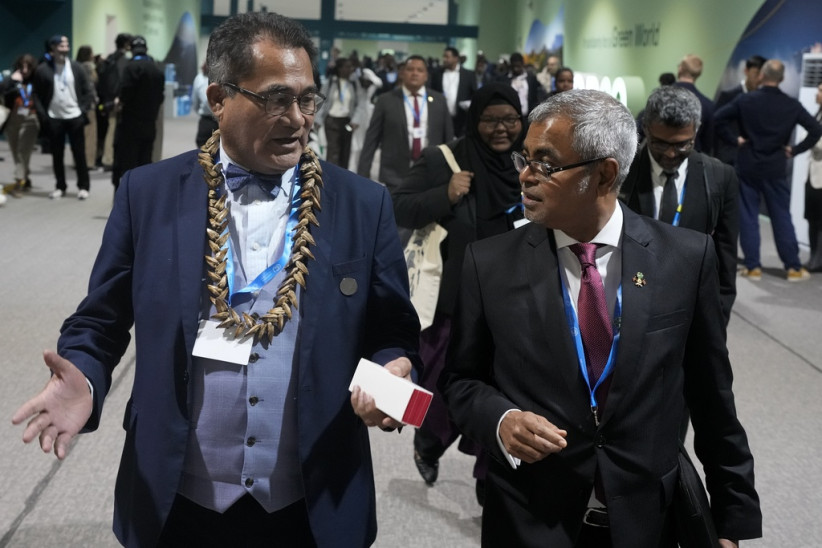The key points to know about the 29th UN climate change conference – What happens if there is no agreement?
Events have taken a dramatic turn in 29th United Nations Climate Change Conference (COP29) with talks on the brink of collapse after the group of small island states announced they were pulling out.
“Shame” shouted some campaigners for the climate, “Pay!” others shouted.
Money is the big issue here – climate diplomats are debating how much money richer countries should commit to giving developing countries to help them deal with climate change.
Key points to know about COP29
Yesterday, the draft text gave a headline target of $250 billion a year by 2035, led by developed countries and covering public and private sources.
- This has been heavily criticized as falling far short of what the poorest countries have asked for
- There is also disagreement about the fossil fuels – i.e. coal, oil and natural gas. The concern is that some countries are trying to renege on last year’s agreement to “transition” from fossil fuel energy systems
- New draft texts on these subjects were expected this morning – but have not yet arrived
- It is therefore unclear when the talks – which were due to end yesterday – will reach an agreement, if at all.
Dramatic developments at COP29
“Shameshouted some climate activists, “Pay up!others shouted.
The subject of tension was John Podesta, who is the US climate envoy, and was found by the meeting room in chaotic scenes in Baku.
OR COP29 took a dramatic turn this afternoon, with withdrawals from developing countries from meetings with the Azerbaijan presidency on climate finance.
“This was the storm before the calm”
There was visible anger among least developed countries and island states that faced taunts from richer nations.
Developing countries and island states said the negotiated economic offer was offensive, feeling excluded and ignored.
In this atmosphere, activists turned on Podesta, shouting that the US had sold out and not paid its fair share.
THE Podesta seemed unfazedtelling the BBC’s Justin Rowlatt that he hoped “this was the storm before the calm».
What happens if there is no agreement?
It is very common for these conferences to be characterized by tension, but it would be very unusual for the talks to break down completely.
If that were the case, the final deal probably would it would be delayed until next June in Bonn, Germany, as happened with COP6 in 2000.
Bonn is the location of the UN’s climate headquarters and is where countries usually gather for the mid-year climate conference, something of a mini-COP.
The aim of these Bonn meetings is to make some progress on some of the technical aspects of the negotiations so that political decisions can be made at the COP at the end of the year.
The withdrawal of the COP29 agreement in Bonn could therefore have negative consequences on progress towards next year’s COP30 in Brazil.
But the talks have not collapsed yet, it remains to be seen how the next few hours will unfold.
Source :Skai
With a wealth of experience honed over 4+ years in journalism, I bring a seasoned voice to the world of news. Currently, I work as a freelance writer and editor, always seeking new opportunities to tell compelling stories in the field of world news.











